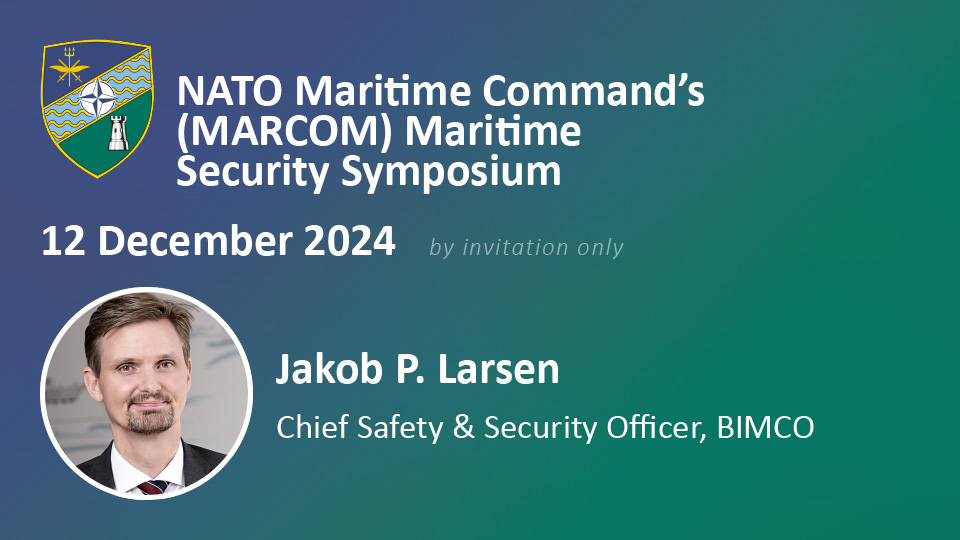Gulf of Guinea states must act and prosecute suspected pirates
Overview
States in the Gulf of Guinea region must take responsibility and step-up prosecution efforts when pirates are apprehended by international navies, following the release of three suspected pirates held in custody on board Danish frigate Esbern Snare.
“The presence of international navies is a very important step in the right direction to keep seafarers safe but establishing a sustainable security situation in the Gulf of Guinea cannot happen without full support of the region. Bringing suspected pirates to justice is best done by regional coastal states,” says Secretary General and CEO, David Loosley.
“We have seen suspected pirates brought to justice in the region before. International collaboration between regional jurisdictions and non-regional military forces holds a tremendous potential that cannot be missed,” Loosley says.
In July 2021, it was reported that a Togolese court had convicted nine men of piracy following an attack on a tanker in May 2019. One of the pirates was sentenced to 15 years in prison while six were each sentenced to 12 years in prison
The Danish frigate has since the end of October 2021 been part of an international anti-piracy effort in the Gulf of Guinea to deter pirates. On 24 November, special forces from the frigate were involved in a firefight with gunmen in a skiff full of piracy equipment in the waters south of Nigeria.
Three of the suspected pirates have since been held in custody on board Esbern Snare while a fourth, who was injured, was transferred to a hospital in Ghana. On 6 January, Denmark announced it was releasing the three suspected pirates while the fourth was flown to Denmark to face a further constitutional inquiry on Friday 7 January.
Since the arrival of international navies with robust mandates, the number of pirate attacks and kidnapped seafarers in the region has dropped significantly. In Q4 of 2020 an estimated 23 attacks were made against merchant ships trading in the Gulf of Guinea while 50 seafarers were kidnapped. In Q4 of 2021 the numbers had dropped to seven attacks and 20 kidnappings.
The Gulf of Guinea coastal states focus increasingly on maritime security and several initiatives are underway. There are however still challenges. As an example, Nigeria’s Deep Blue is still not deployed on active antipiracy operations.
“If regional coastal states help prosecute apprehended pirates it will significantly strengthen the case for capacity-building and support from the international community and underpin the development of the blue economy in West Africa,” says BIMCO’s Head of Maritime Safety and Security, Jakob Larsen.
Feedback or a question about this information?
VPS Bunker Alerts
Veritas Petroleum Services (VPS) publish regular Bunker Alerts based entirely on fuel samples and have kindly permitted BIMCO’s Members to access this information.
The Bunker Alerts are not intended to be an evaluation of overall bunker quality in the port or area concerned, but usually highlight a specific parameter within the fuel which has raised a quality issue.
Latest ice reports for members
Latest piracy reports
Latest industry releasable threats
ELSEWHERE ON BIMCO
Contracts & Clauses
All of BIMCO's most widely used contracts and clauses as well as advice on managing charters and business partners.
Learn about your cargo
For general guidance and information on cargo-related queries.
BIMCO Publications
Want to buy or download a BIMCO publication? Use the link to get access to the ballast water management guide, the ship master’s security manual and many other publications.
About a new business partner
We can help members check new business partners. We also help to recover millions of USD (undisputed) funds every year.





